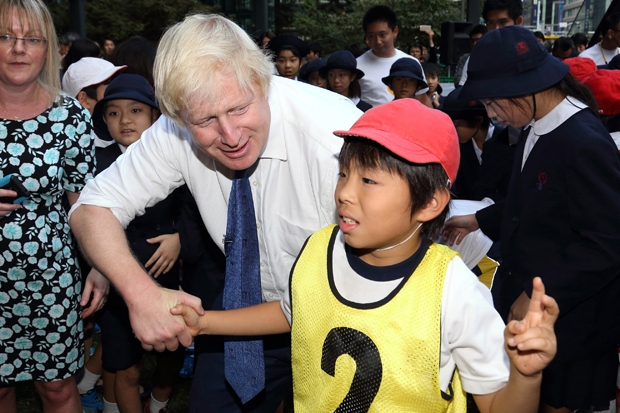Frankly I don’t know why the British media made such a big fat fuss last week when I accidentally flattened a ten-year-old Japanese rugby player called Toki. He got to his feet. He smiled. Everyone applauded. That’s rugby, isn’t it? You get knocked down, you get up again. And yet I have to admit that I offered a silent prayer of thanks that I didn’t actually hurt the little guy. They aren’t making many kids like Toki these days; in fact they aren’t making enough kids at all.
If you want proof of the rule that nobody knows anything, look up a 1988 bestseller called Yen! Japan’s New Financial Empire and its Threat to America. It was by Daniel Burstein, an American financial journalist, and the gist was that the yen was about to supplant the dollar as the world’s reserve currency; that Japan was buying up key American assets and flexing its muscles, with a frightening martial revanchism, with a view to taking over the world. As geopolitical prophecies go, it is hard to think of anyone who has ever written such total and utter balls.
Shortly after Burstein had his vision, the Japanese economy entered a decades-long stagnation, and a slo-mo collapse in population. Today there are more nappies sold for old people than there are for babies (and that is not just because they have special pervy clubs in Japan, I am told, where grown men are allowed to dress up as infants). There are more pet dogs in Japan than there are children under 15. The population is declining at a rate of about 260,000 per year. Imagine if Britain lost Wolverhampton, then Plymouth, then Bolton, then Derby… and so on. By 2050 the head count is expected to fall from 125 million to 90 million — about the same size, by then, as the United Kingdom.









Comments
Join the debate for just £1 a month
Be part of the conversation with other Spectator readers by getting your first three months for £3.
UNLOCK ACCESS Just £1 a monthAlready a subscriber? Log in